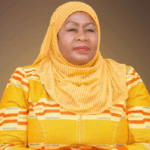As the world enters a new era powered by Artificial Intelligence (AI), Microsoft Nigeria Country Manager Abedin Yusuf says Africa's biggest opportunity lies not just in technology infrastructure, but in building the skills to power it.
“Technology without skills is an empty promise. To fully unlock the potential of AI, Africa must invest in its people as well as its servers,” Yusuf said in a statement provided to BusinessDay.
According to Youssef, the continent stands at a turning point, which could define its role in the global digital economy for the next three decades. While previous revolutions were driven by hardware, software, and connectivity, he believes the AI era will be shaped by human potential and creativity.
The Country Manager reminded that the move from physical hardware to cloud computing is one of the biggest turning points in technology history. “The shift to the cloud wasn't just about infrastructure; it was about access and scalability,” he said.
With improved broadband connectivity and the establishment of datacenters, Africa was able to overcome traditional IT barriers and democratize access to computing, even as Yusuf said Microsoft played a key role by becoming the first hyperscale cloud provider to launch enterprise-grade datacenter regions on the continent with edge nodes in Nigeria and Kenya, improving network speeds and accessibility.
“These investments lay the groundwork for Africa's AI future,” Youssef said. “They ensure that computing power and data are no longer a hindrance but an enabler of innovation.”
Despite these advances, Yusuf stressed that the true test of Africa's readiness for the AI age will be how well it develops its people. “It is not silicon that will shape the future, but the skills that will bring it to life,” he said.
Programs like Microsoft's AI National Skilling Initiative (AINSI) and the Microsoft Founders Hub, developed in partnership with NVIDIA's Inception program, are already training a new generation of AI developers and innovators across Africa. These initiatives aim to equip young Africans, startups and professionals with the technical and ethical knowledge needed to responsibly build and deploy AI solutions.
Youssef said, “If we continue to invest in talent the next wave of global innovation will come from Africa. When people are skilled, they can turn access into opportunity.”
Across the continent, AI-powered startups are emerging in key sectors such as finance, logistics, marketing and clean energy. Youssef highlighted examples such as Wall-X and Cotrust Equity in financial services, Teragon in digital marketing, Truckee in logistics and ICE Commercial Power in energy access, all of which use AI to solve local challenges and impact at scale.
Youssef said, “The challenges facing Africans are universal, including financial inclusion, access to health care, quality education and energy. The solutions we develop here can serve the world.”
According to PwC's Global Artificial Intelligence study, AI could contribute more than $1.2 trillion to Africa's economy by 2030. Microsoft's country manager believes that realizing this potential requires sustained investment not just in infrastructure but also in human capital.
For Yusuf, the next 30 years could mark Africa's golden age if the continent seizes this opportunity. “Our youth population is one of the youngest and most dynamic in the world. If we equip them with AI skills, we can transform Africa from a consumer of technology to a global producer of AI solutions,” he said.
He said Microsoft's partnerships with startups, universities and governments across Africa are part of a long-term commitment to ensuring that innovation is locally driven and globally relevant. “The future of Africa's AI revolution will not just be written in code. It will be written in the creativity, resilience and talent of its people,” Youssef confirmed.











